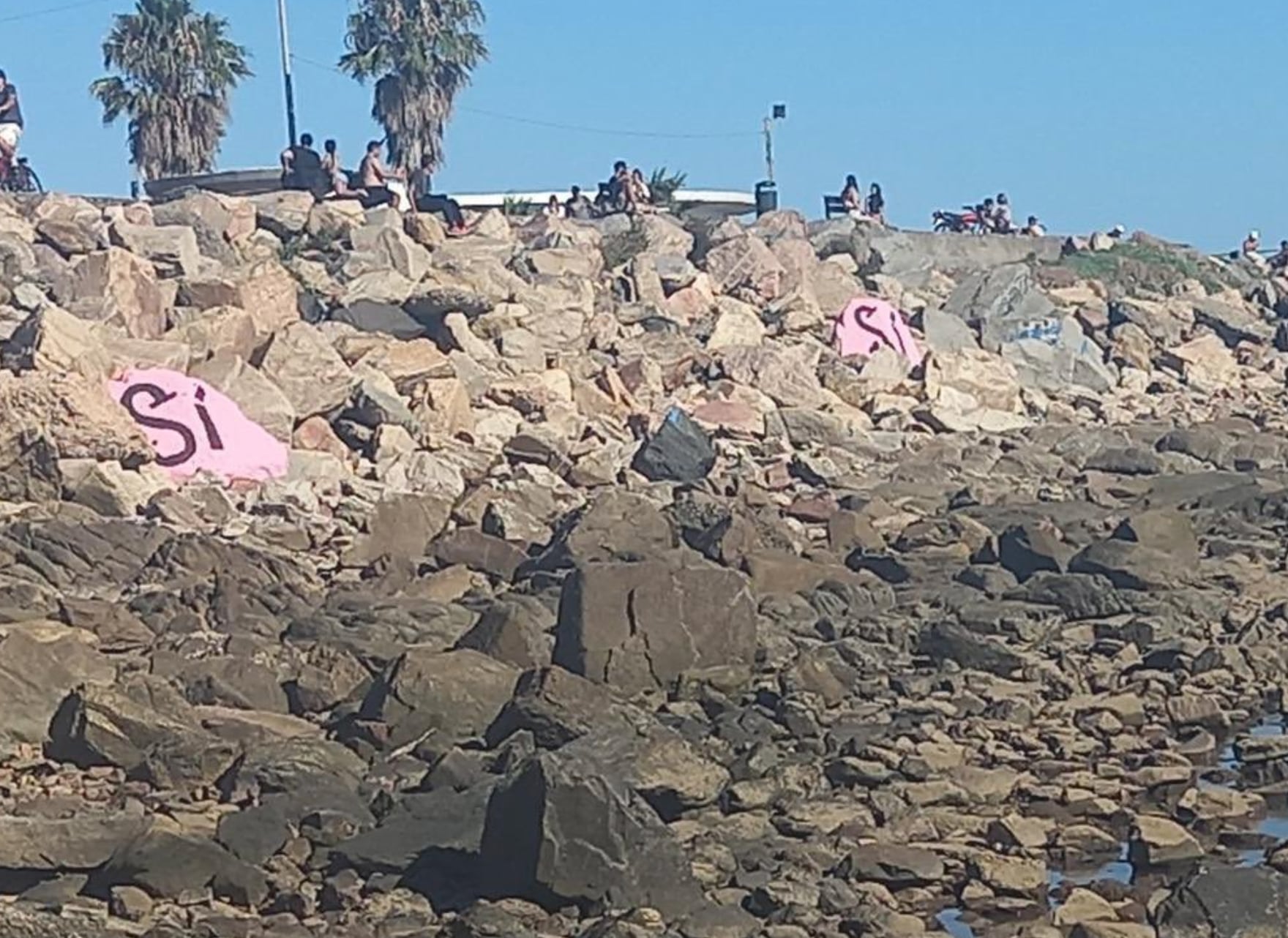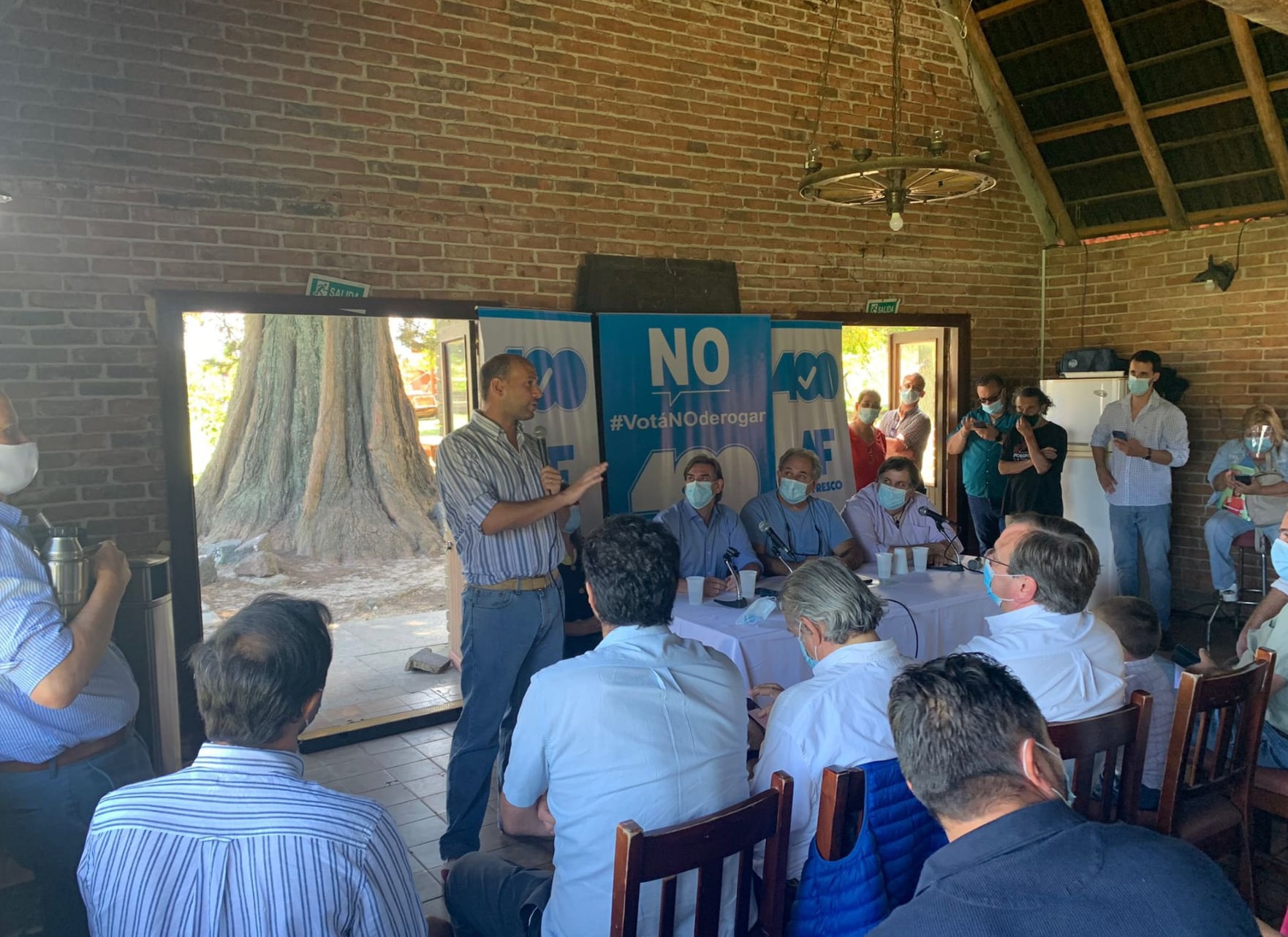:quality(85)/cloudfront-us-east-1.images.arcpublishing.com/infobae/UR4AFM3N5JETTGV4UG4JW5YB3U.jpg 420w)
The Urgent Consideration Law, popularly known by its acronym “LUC”, reached the Uruguayan Parliament under the government of Luis Lacalle Pou in March 2020. It was the first law enacted by the Executive Branch, which passed with a parliamentary majority thanks to the “multicolored coalition” of right-wing parties that was formed during the election campaign.
This is a set of 476 articles that changed several norms, the flagship law of the government of Luis Lacalle Pou.
What changed? A lot of areas. For example, articles related to public safety doubled the penalties for adolescents who commit offences, increased the sentence for drug trafficking and created new crimes.
With regard to education, decentralized councils were eliminated, new mechanisms for validating teacher training and new statutes for teacher and non-teacher officials were introduced. Security and education reforms are, within the law, not only the hottest issues at the public level, but also the proposals that most identify the Lacalle Pou government.
In other areas, regulations appeared on the right to strike, the new unsecured rental regime, the fixation of fuel prices, the easing of controls on money laundering, among several others.
After the discontent on the part of the Broad Front, endorsed by militants, leaders and citizens, a collection of signatures began to take 135 articles of the LUC to a referendum and achieve their repeal. On December 8, 2021, the Electoral Court counted the 671,544 signatures needed to enable the referendum, which will be voted on March 27.

In this context, the Uruguayan Parliament was divided: on the one hand, by parties with more right-wing ideologies (the National Party, the Colorado Party, the Independent Party, the Open Cabildo and the People's Party), this so-called “multicolor coalition” and, on the other, by the left-wing party grouping, called the Broad Front.
Although the participation of citizens grew, and with them the support for each campaign, on December 8, 2021, the Electoral Court defined the colors of the ballots for the two options that the referendum will have. The ballot for “No”, which implies not repealing the law and keeping the articles, is light blue; and the “Yes” ballot, which implies repealing, is pink. The agency printed 9 million ballots, 4.5 million of each color (in a country where the population is almost 3.5 million).
From this definition, propaganda campaigns took on more and more strength, identifying each side with its color. In fact, the ballot with the “Yes” took as the main figure of its campaign the popular Pink Panther. But in February 2020, it was reported that the Ancap Federation (Fancap) in Uruguay declared that it received an intimation from the American company where a scribe gave them 24 hours to stop using the figure and music of the Pink Panther.

The vote for “No”, on the other hand, took the color blue in a much more patriotic tone. Not only do Uruguayans themselves refer to the national football team and their jersey as “la celeste”, but the most characteristic colors of the national flag are blue and white. In addition, the representative color of the National Party, to which Lacalle Pou belongs is, precisely, the celestial one.
What will happen when there is a result?
There are the technical effects of the result of the referendum. If the “No” triumphs, the 135 articles in trial remain and continue to be applied as before.
If, on the other hand, the “Yes” wins, neither the Constitution nor Law 16.017 sheds light on how to proceed. General legal criteria will be used to resolve it. One possibility is that they will be retroactively disapplied and the situations regulated to the State prior to the LUC be replaced. Another is that the 135 articles should be repealed and that they simply can no longer be applied in the future.
The winning campaign will be the one that gets 50% +1 vote of the total number of votes considered valid (votes for “Yes”, for “No” and votes blank).
But beyond the legal consequences of the referendum, there are those that are symbolic. Two years after the start of Lacalle Pou's presidency, the second leg of his government will be guided by the result of the referendum on March 27. What matters is the citizen's pronouncement, whether or not to support the first right-wing government that came to power after 15 years of rule by the Broad Front.

In addition, the result will be evaluated with the 2020 election cycle and will function as a thermometer for the 2024 elections. Rafael Porzecanski, of the Opción pollster in Uruguay said that for the political reading after the referendum “it will be important who wins, but also by how much they earn,” La Diaria reported.
In that same interview, he added that this election is more “bibloquistic” than “bipartisan”, because the support around each campaign was marked by blocs of political parties allied towards a more right-wing or more left-wing ideology. “Bipartisanship is still far away because within one of the blocs there is a lack of the push to create a model of electoral offering in the broad front style,” he said.
Luis Lacalle Pou himself told the press that, whatever the outcome of March 27, he will continue to govern. With “the same tools or with others that will make it a little more difficult, but continue to govern,” he told the newspaper El País.

KEEP READING:
